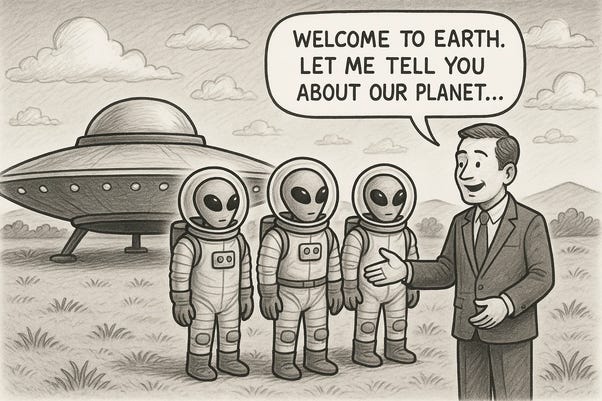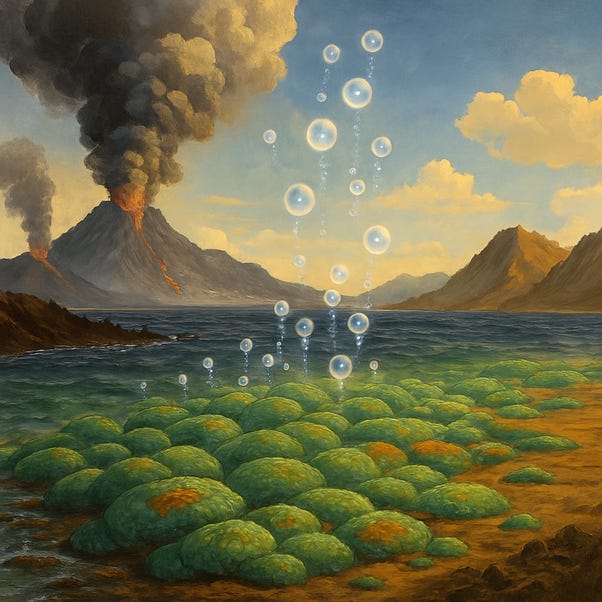How to Explain Earth to an Alien
My dear alien life-form, welcome to Earth. Let me tell you about the third planet from the star we call the Sun, or Sol. Earth is a planet where complex life follows a pattern of consuming available resources until they become depleted, then dying out due to an accumulation of waste products that the life forms cannot process. This cycle triggers extinction-level events. We've seen this pattern in the Great Oxidation Event, where early cyanobacteria produced oxygen that was toxic to the anaerobic life forms of that era, and we're witnessing it again in the current Anthropocene extinction, where human activities are driving widespread species loss.
Life on this planet has always been a double-edged force—capable of immense creativity and adaptation, yet also prone to overreach and self-destruction. The Great Oxidation Event is a striking example. Cyanobacteria flooded the atmosphere with oxygen over two billion years ago, poisoning most of the anaerobic life that had dominated the Earth up to that point. It was life that caused that mass extinction. The oxygen they produced was a waste product to them, but it transformed the planet in ways that killed much of the existing biosphere.
Now humans are doing something eerily similar. We are an intelligent species, but we’re still biological. We consume, we expand, and we tend to push ecosystems toward collapse. Fossil fuels, plastic, nitrogen fertilizers, and carbon dioxide are just our version of the oxygen crisis. We’re reshaping the planet at a geologic scale—melting glaciers, acidifying oceans, and driving species to extinction faster than natural processes can replace them. This Anthropocene extinction is, once again, a case of life disrupting the balance of its own environment.
If you step back far enough, it seems that intelligence doesn’t necessarily save a species from collapse. In fact, it might speed it up. We invent more ways to extract, burn, and waste. The irony is that our very success—our ability to manipulate the world—has become a risk to our survival. We are not exempt from the same evolutionary checks that brought down the cyanobacteria’s competitors or the dinosaurs. We are part of nature, not outside it.
But there's a faint hope. Unlike the microbes or megafauna of past extinctions, we can recognize what we are doing. We can see the pattern. There’s a certain kind of grim optimism that grows out of seeing the worst and still deciding to act. Not the kind that says everything will be fine, but the kind that says maybe it won’t—and still, we try. Even if the odds are long. Even if we’ve seen this story before. The cyanobacteria didn’t know what they were doing. We do.
That doesn’t guarantee anything. But it means we have a different kind of responsibility. Maybe we don’t get to save the world. But we get to decide what kind of species we are while it lasts.
And maybe that matters.




